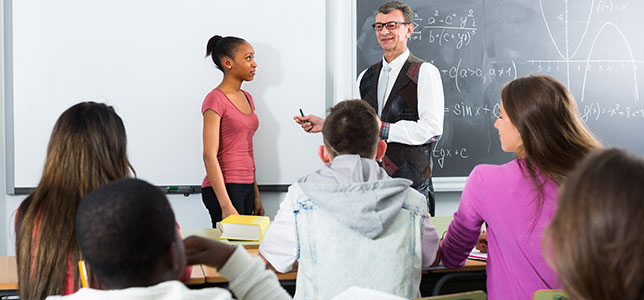NGSS Gets OER PD for Making Science Accessible
- By Dian Schaffhauser
- 02/14/17

As teachers develop new, three-dimensional formative assessments aligned to the Next Generation Science Standards (NGSS), a new collaborative process is producing open educational resources (OER) to help them reach every student.
The "Advancing Coherent and Equitable Systems of Science Education" (ACESSE, pronounced "access") project is a is a partnership between the Council of State Science Supervisors, the schools of education at the University of Colorado Boulder and the University of Washington. The project received a three-year, $1.5 million grant from the National Science Foundation to support the work.
NGSS and the National Research Council's "Framework for K-12 Science Education" is based on a vision that calls for major changes to curriculum, instruction, assessment and involvement of community science resources, to make science more accessible and meaningful to all students. As a two-page brief about ACESSE explained, "For students and teachers to grow in their understanding and love of science, the messages they hear and the learning opportunities they experiences need to be consistent, cumulative and relevant. Students need to hear and experience the idea that 'people like me do science and engineering'--in order to identify with science as something they can relate to and perhaps contribute to."
"We want to expand diversity in STEM fields. And for that, we need to improve access to quality STEM education around the country by making learning opportunities more coherent and aligned," said Bill Penuel, principal investigator for the project and professor of learning sciences and human development at CU Boulder, in coverage on the Institute for Science + Math Education website.
"Educators are frequently asked to perform a balancing act, trying to implement state and local initiatives that often don't coherently fit together," added Philip Bell, a co-principal investigator on the project and a professor at U Washington. "This disconnect can make it difficult to make improvements across school systems. With this project, we are attempting to address this need head-on."
The ACESSE project aims to keep equity a focus in the work done at the state level. The idea is for state leaders to work with local districts, schools, communities, parents and students in developing their visions of "inclusive instruction" and building commitment for providing more equitable opportunities to learn.
Strategies and resources that come out of this project will be shared around the country through a network of science supervisors. Along the way, ACESSE will study what occurs in states and continue developing, testing and improving on resources and strategies that educators and researchers design together.
"Through ACESSE, I've been able to have vital discussions in my state about how important it is that we critically analyze policies and initiatives to ensure they don't pull in opposite directions from the main goals we've already set for science education," said Oklahoma State Science Director and co-principal investigator Tiffany Neill. "When we're evaluating an initiative, we're thinking more about the system in which this initiative has already worked and how that system may or may not be similar to our own."
The first two resources delivered through the project are hour-long, web-based professional development sessions:
The content is released under a Creative Commons CC BY-SA 4.0 license for sharing and modification. The researchers said they're hoping educators will share the resources with their networks, particularly in smaller professional learning communities, and customize the material to suit their individual schools or districts.
Links to the video resources, as well as PowerPoint versions and facilitator's guides are on each of the resource pages, located on the STEM Teaching Tools website.
About the Author
Dian Schaffhauser is a former senior contributing editor for 1105 Media's education publications THE Journal, Campus Technology and Spaces4Learning.